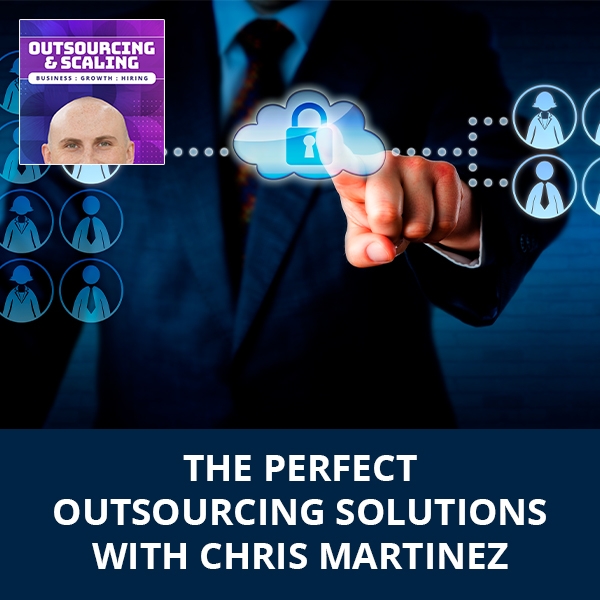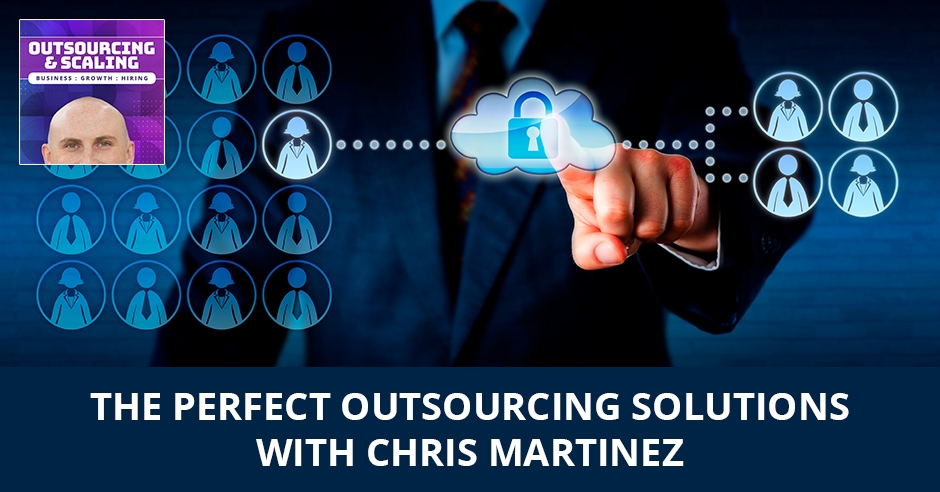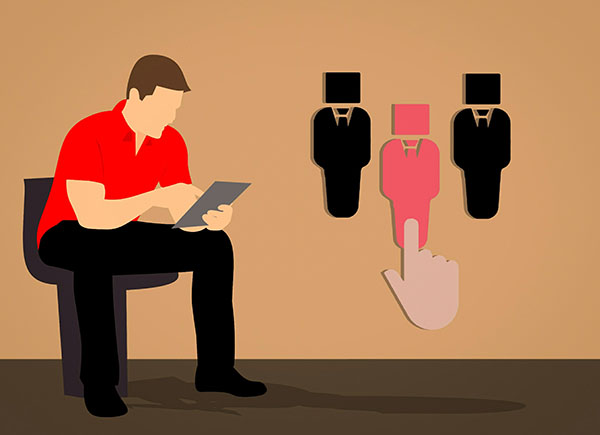


—
Listen to the podcast here:
[smart_track_player url=”https://www.podetize.com/statsapi/www.podetize.com/wp-content/uploads/fileuploads/11-5b145ef137b51b3d1af0633e9305c43d/06/2019/cbba18a9a8cc29ec671ba2f4a782d14d.mp3″ title=”The Perfect Outsourcing Solutions with Chris Martinez” artist=”Nathan Hirsch” image=”https://freeup.net/wp-content/uploads/2019/04/OAS.png” ]
Download the audio file here.
The Perfect Outsourcing Solutions with Chris Martinez
I have a special guest, Chris Martinez. Chris, how are you doing?
I’m doing fantastic. How are you, sir?
I’m doing great. For those of you that don’t know, Chris is the CEO of DUDE where they help digital agencies by giving them the people and the processes that they can scale profitably. Chris, one of the things I love about you is you’re all about outsourcing. You’re all about hiring. We’re going to talk all about that. Before we do, let’s take a giant step back to what you were doing before you’re an entrepreneur, maybe before your real job. Tell us what you’re like in childhood. Were you a straight A student? Were you a rebel? Did you know you wanted to be an entrepreneur?
I had a fairly interesting childhood. I would consider it a bit unconventional for a lot of people at least in our industry and the digital marketing space. I had an abusive childhood. There weren’t a whole lot of like great memories. I didn’t gravitate towards entrepreneurship when I was a kid. Back in my teenagers, I was like a little hoodlum. Honestly, it was like a contest to see who could be the worst kid. Looking back on it, what I’ve learned is that most likely a lot of the kids that I was hanging out with also had difficult childhoods.
That’s why we all congregated together. Unfortunately, I played soccer and that was my one outlet. I played competitively high-level soccer. While my friends were getting into trouble seven days out of the week, I was only getting into trouble three days out of the week was because I was playing soccer for the other four. That’s what I think saved me from going down a bad path. Once I got to high school, my hoodlum friends basically disappeared. Because I was on the sports route, that kept me on the straight and narrow. The funny thing is my friends back then, none of them were dumb. They all were intelligent. They just didn’t have a lot of opportunities.

I think I just got lucky with the soccer thing. We all got good grades. I got good grades all through high school. My friend who disappeared, who even knows what happened to most of them. I do know that my best friend from middle school, he ended up getting shot and killed after high school. He got involved in the gang world, which is what we were all about when we were like young teenagers. The crazy thing is that academically he was as smart and as capable as me. He did not have a good home life and few opportunities. That’s what happened. I didn’t get the entrepreneurial bug until I was in college. College was a huge deal for me because it opened my eyes and it showed me that life was a lot different than what I had known growing up in Torrance, California, which if you don’t know that area, it’s a suburb of LA. That’s when I learned about this idea of entrepreneurship. There’s a whole lot of things that went on between then and now running DUDE. I don’t know if we have enough time for that.
I can’t relate to that at all. My parents were teachers. I was definitely fortunate enough. Do you feel like that gave you a sense for what the real world was like at an early age? While I didn’t have that, my parents always taught me finance is probably way earlier than other people did. I feel like from your side, you probably experience what the real world was like and how brutal it can be if you don’t figure out your own way early on.
“Would I have chosen a different childhood or would I wish my childhood on anybody else?” “No.” It’s a good and a bad thing because I was forced to grow up early. In many ways, I had to fight to survive to get through that time period. I am tough. It’s incredibly difficult to beat me on anything. I’m a fighter that has definitely helped me to persevere through a lot of difficult times as an entrepreneur. At the same times, I’ve had to overcome a lot of the chip on my shoulder things that I have had since I was a child or not feeling good enough.
All these other outside feelings or feelings of self-esteem, not feeling like I belong, it’s something that gets ingrained to you when you’re a kid. In many ways, going into the business world where it’s not crazy, fist fight all the time. You do have to get along with people. People have different experiences, the way they communicate through the way that they respond, the way that you talk to them and the criticism that you get. A lot of the things that I learned when I was a kid that helped me survive, I’ve had to unlearn as an adult in entrepreneurship. Especially in leadership now that I have a bunch of team members and staff.
Let’s fast forward a little bit. You get that entrepreneurial itch. What was the first thing you did? Was it DUDE or did you have some other businesses before that?
Your needs change as your company grows, and the way that you do things changes as well.
I had like a business in college. I was fortunate enough I went to school at UC Santa Barbara. This is before they had like online note-taking services. I was broke when I was in college. I decided, “I’m going to take notes for this huge class.” There’s like 1,000 kids. I took notes. It was a lower division class, Sociology 1. I was a sociology major. I sat in on that class, took notes and sold notes right before the midterms and right before the final. I made $1,000. That was my first time making money $1,000 when you’re 22 years old and completely flat broke is fricking amazing.
That’s when I got the first itch. My first real business was in 2007. In December 2006, my dad got diagnosed with cancer. He died a month later or three days before my 27th birthday. I decided that after that I wanted to start my first business. I launched a print soccer magazine at the worst possible time in history. I made an insane amount of mistakes. Within eighteen months, I had lost every single penny that I had. I didn’t know how I was going to survive. I made it through. My first business was that soccer magazine. I did so many things wrong. At the same time, I have to look back on that experience with some level of appreciation because I would not be where I am had I not failed so miserably in that first business.
I’ve always thought whenever you come across something now I feel once you’re five to ten years into being an entrepreneur, “I’ve come across this before. I know what to expect. I know exactly what not to do.” Obviously, new stuff comes up, but a lot of it is repetitive no matter what business you’re in. Talk about that mindset. I can’t even imagine losing everything out on a business that you probably put your blood, sweat and tears into. What made you continue forward and say, “I still want to be an entrepreneur” instead of saying, “That was risky. Let’s go get a 9 to 5 job and make sure that I have that retirement plan.”
It’s one that’s near and dear to my heart because I feel there’s so much marketing out there trying to get people to be entrepreneurs. It seems like it’s the cool thing to do. In my opinion, the reality is that it’s not for everybody. This life is not for everybody. It’s like the life of being a doctor, a nurse, a garbage man or whatever it is. Not everybody has to fit into this entrepreneurship box and if it’s not for you, that’s totally okay. Have the self-awareness to recognize that this is not the lifestyle that you’re looking for. For me, I’m 100% an entrepreneur. That’s who I am. I would rather die than not be an entrepreneur. I cannot go a day without being an entrepreneur. It’s a part of who I am. My brain is wired that way. For me, it’s not even a choice. It’s who I am. That’s why I was always looking for opportunities and seeing things in a different way.
My first business after the failed soccer magazine, I started a digital agency. Jumping back two years prior to launching the agency, I started learning about marketing. I taught myself how to build my first website by watching online videos. I built my first WordPress website knowing literally like nothing about web design and development. I built that first website in a weekend. Over time, it snowballed. I started learning more and getting more involved. I started working in sales for a company that sold pay-per-click management. I saw that they didn’t build websites. I was like, “I could totally start this website agency.” That’s basically how it started. Fast forward to 2017, I had my operations down here in Tijuana, Mexico of all places. I launched DUDE with five people, five designers and developers. Now we have over 30 people in just a year. We grew over 30 full-time designers and developers here in TJ. We’re working with digital agencies. I feel this is a real entrepreneurial journey where it keeps evolving and changing. You’re pivoting all the time and now we’re here. Things are going pretty well.

One day you wake up five years later, in my case, I was selling baby products. I went into running a freelancer marketplace. For you, you’re in Mexico working with designers. Who have thought that fifteen years ago? Let’s talk about hiring. This is the Outsourcing and Scaling show. Do you remember who your first hire was and how that went?
My first hires in the digital agency, I partnered with the guy who had a team in the Philippines. We started out with four people there. I inherited that team. When we started out, my partner was supposed to handle the operations. I was supposed to handle sales. As many partnerships go, it doesn’t go according to plan. I ended up helping out with the operations as well as the sales. That partner left. Eventually, I was like, “Working in the Philippines wasn’t conducive for our customer service goals that we had for our clients here in the states. I needed daytime support.”
I came down here to Mexico. I was living in San Diego. I was like, “I bet you I can find designers and developers in Tijuana, Mexico,” which if you don’t know the geography, it’s literally like ten minutes from downtown San Diego. My first hire here was a graphic designer. They didn’t know web design. He was good at Photoshop, all that good stuff. That was our very first hire was a designer down here. Eventually, we found a developer. The challenge was we didn’t even know where to look because back then they didn’t have Indeed in Mexico or people didn’t use Craigslist to find applicants. It was difficult to find out how do we find people. Eventually, we got our first developer. He’s still with us now. He’s one of our team leaders. We made a ton of mistakes in hiring people. I don’t know if you want me to talk about that.
Tell me about your worst hire. You don’t have to give a name. Tell us what happened.
First of all, I take 100% credit for every bad hire that we’ve made. That was my decision. I did not evaluate them correctly. I did not put them in a position to succeed. Our worst hires, I ended up hiring this developer. He might’ve been our second or third developer ever. My gut told me that he was not a good person. In the developer world, it’s interesting because you find people who are technically good, but they lack soft skills. They don’t care about the clients. That’s when you have these like ego battles with developers. I didn’t listen to my gut. We brought this guy in because we were desperate. He was basically cancer. There was another kid who we hired after him who was young, fresh out of college and the older guy, the original guy that we hired, who’s super talented.
The people that we employ are the most important aspect of our company.
The younger guy latched on the older guy and basically, the two of them became this cancerous plague inside my office. The straw that broke the camel’s back because I was working out of the office. I was working from home this one morning. I had a job post up on Craigslist. The older guy who was cancerous emailed me inquiring about this job post on Craigslist, not knowing that he was already working for the company. Immediately I sent an email to the person who was handling our HR and I said, “We got to let this guy go.” In Mexico, it’s difficult to let people go. We had to do all this paperwork and basically come up with a plan to dismiss this candidate.
I brought him in on a Friday. I said, “How long have you been looking for another job?” He says, “I’m not looking for another job.” I turned around my computer and I say, “Interesting because I got this email from you on this date during work hours.” I was like, “How long have you been looking for another job?” He was like, “Since the day that I started, I’ve been looking for another job.” He’s like a smug jerk. I’m like, “This is your last day. Sign this form. You can go pick up your last check.” Fifteen minutes later, his little buddy comes in and says, “Could you do that to me?” I was like, “Yeah. If you are looking for another job and you’re not performing, this isn’t a charity.” He quits. One day I got rid of both of those people who are super toxic to our company. That was a memorable day.
What was it like that Monday after the weekend coming back without having them in the office?
It didn’t even take that long. That afternoon, it’s a breath of fresh air because they created so much anxiety amongst the other staff who did care or did want to be there. That afternoon we all went out for drinks and we were chatting about it. I told them what happened. They were joking about like, “That’s the stupidest thing I’ve ever heard. How to apply to a job that you’re already working for?” Everybody was super mellow and it was fun. That wasn’t the last challenge. That was definitely the most memorable one. I still tell that story to this day too.
How many people lose their job because they applied for their own job? Let’s talk about managing teams. You’ve obviously gotten better at it. When you manage five people, it’s different than 10, 15, 30 where you’re at now, what tips do you have for the audience on keeping that culture and keeping people productive?

You hit the nail on the head when you said that your needs change as your company grows and the way that you do things changes as well. Everybody needs to embrace the fact that you are hiring great people and you need to be able to empower them to do their thing and allow them to be great. Micromanaging, it does not work. I’ve been on that side of the spectrum. Unfortunately, when I started my company, I didn’t know that I wanted a whole lot of staff. I looked at them as an unnecessary evil. That’s the complete opposite. My mindset is completely different. These people that we employ are the most important aspect of our company. In many ways, they’re more important than your product because your product can change or the market might dictate that your product needs to change.
With great people, they’ll be able to help you overcome any of those obstacles. The first thing that we look at when we post a job when we’re looking to fill a position, is obviously there’s a core set of skills they need to have. Let’s take developers for example. All of our developers need to be absolute experts at HTML and CSS. We have some varying levels of PHP and JavaScript. When we put the job post up, we say that they have to have those skills, the person typically replies with a resume. We’ll analyze the resume. We feel like it’s potentially a good fit, we’ll move them to the next phase. We send them an email questionnaire asking them certain questions. It’s related to work and also personal goals, what interested you about our company.
If they answer those correctly and in a timely manner, how they reply is as important as what they reply with. If they fit with our company culture, when they had their answers are good and we feel they’re a potentially good fit, we move into the next phase. We’ll do a phone interview. That phone interview says a lot because obviously, we’re looking at what they say on the phone interview. We’re also looking at how they say it and how they treat people. I’ll take somebody who’s a great human all day over somebody who might have the fantastic technical ability, but it’s a jerk. You can always train for skill. You typically cannot train somebody to be a nice person and be a good human being.
If they pass the phone interview, we give them an online test. This is again, to test their technical ability. This is like a standardized test that we give everybody. It’s easy to measure across a bunch of different candidates who’s got the chops and who doesn’t. If they pass that, we’ll bring them in for an in-person interview. We have at least four people to interview them. Everybody’s going to get a different take. The other thing is that as you go through this interview process, the first person that they interview with the candidate is going to be on their absolute best behavior. The second person, they’re getting a little tired. By the fourth person, you get a sense of who this candidate is, how they’re going to perform under pressure because they’re tired and they might be a little bit cranky or whatever.
You want to see that. You want to get down past the first couple layers of this shell that they’re wearing while they’re in the interview. After all of us interview them and we all collectively agree that this is somebody that we want on our team and this is somebody we can picture ourselves working for one day, we’ll give them one final test, which is if it’s a developer, it’ll be like a website build or something like that. We give them that test with the deadline. If they pass that and the quality is good, we bring them on. It’s a thorough process that we put everybody through. It’s important because we have a distinct company culture here that we’ve developed, while it’s the staff and everybody has developed together. We want to maintain that. We don’t want to let anybody in who could be cancerous because we’ve seen the negative side effects of that. That’s our hiring process in a nutshell.
Talk to our audience about hiring developers because it’s a totally different animal. I took me years to figure out how to do it. They tend to not have a business mindset. You tend not to have the developer mindset at least I don’t. What have you done to overcome that? Any advice for the audience?
It goes back to the soft skills. It’s looking for developers who have an innate desire to serve other people. There has to be an element of customer service inside of them. If they want to program, do the work and they don’t care about the outcome, that’s not the right person for you. Let them go and be somebody else’s problem. Because in what we do and where we work with digital agencies, there’s a marketing component. We’re trying to get conversion and leads in that thing. There is cut and dry. This is a successful campaign, this is not. You need to find the developer who even though they might not be seeing the end product, but they understand that they are a big part of this program. They care about that and they care about what’s happening to the clients.
Not everybody is wired like that. Some people want to sit behind a desk and they want a program. They don’t care what happens on the other side. When you’re hiring developers, in my opinion, you want to find somebody who has that internal desire to serve others and that does care. There are ways that you can test for that. You can look at their customer service training. We also give a psychometric test to candidates. We can look at the way that they think, their values, their beliefs. That stuff does change over time. It’s not to say that a younger person is going to be set in their ways forever or an older person to set in their ways forever. As you experience more your values, your belief system starts to change over time with experience. The psychometric exam helps us to look at that person internally and what drives them, what their values are. It helps us to gauge how they’re going to treat our customers as well as their teammates. That’s another thing that we do that helps out. I would say like first and foremost, look at the soft skills.
Chris, I enjoyed hearing your story. You gave some great advice to the audience. Where can people find out more about you and what are you excited about?
The first one I’ll say, you can go to our website, DUDEAgency.io. If you go on social media, it’s Facebook.com/DUDEAgency, Instagram, it’s @DUDEAgency.io. That’s the first way that you can connect with me. You can also shoot me an email. I’m open with that, Chris@DUDEAgency.io. The thing that I’m most excited about is our growth. In 2018, we went from 5 to 29 people. Now, we’re over 30. We moved to this huge office. We basically took a warehouse and converted it into office space so we can have 200 people here now.
I’m excited about the growth and continuing to give opportunities to people here in Tijuana. Let’s be honest, they’re on a lot of people there on a lot of positive things that are being said about Tijuana, Mexico. It’s fun for me to show, at least in the digital agencies that there’s an unbelievable amount of talented designers and developers here. They want to help you grow your agency. Task by task, we’re changing that narrative about Tijuana, Mexico. That’s like another big thing that gets me fired up every single day is being able to change the way that people perceive this country and especially the city.
Thanks for coming on. I’m sure we’ll be in touch soon.
Thanks for having me.
Important Links:
- DUDE
- DUDEAgency.io
- Facebook.com/DUDEAgency – DUDE’s Facebook
- @DUDEAgency.io – DUDE’s Instagram
- Chris@DUDEAgency.io
About Chris Martinez
 Chris Martinez is the CEO of DUDE where they help digital agencies by giving them the people and the processes so that they can scale profitably.
Chris Martinez is the CEO of DUDE where they help digital agencies by giving them the people and the processes so that they can scale profitably.
